Top ERP Software Comparison
By Unknown Author | Published: 2024-10-27 | Category: Erp Software
About Erp Software
Enterprise Resource Planning (ERP) software integrates core business processes like finance, HR, manufacturing, supply chain, services, procurement, and more into a single system. It provides a unified view of business operations, improves efficiency, and facilitates data-driven decision-making.
Scoring Criteria
- → Functionality
- → Usability
- → Customization
- → Integration Capabilities
- → Support
- → Value for Money
The Best Erp Software
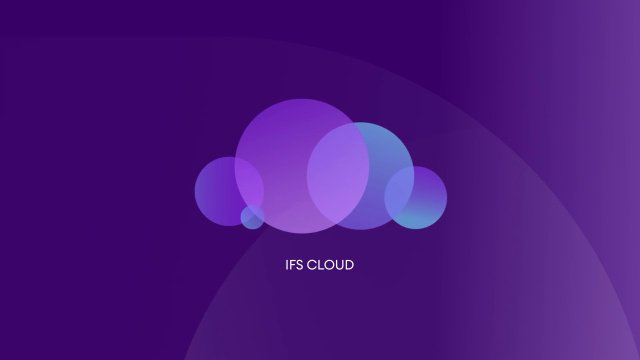 #10
#10
IFS Cloud
By IFS
A comprehensive ERP solution focused on asset-intensive industries, field service management, manufacturing, and aerospace & defense.
Platforms & Use Cases
Platforms: Cloud, Remote (Private Cloud), Self-Managed (On-Premise)
Best For: Asset Management (EAM), Field Service Management (FSM), Complex Manufacturing, Aerospace & Defense, Energy & Utilities, Construction & Engineering
Key Features
- ✓Asset Lifecycle Management: Deep capabilities for managing complex assets throughout their entire lifecycle.
- ✓Field Service Management: Industry-leading FSM features including scheduling, optimization, mobile workforce management.
- ✓Project-Based ERP: Strong support for project-centric operations, including project manufacturing and engineering.
- ✓Composable Architecture: Built as a single platform allowing customers to deploy only the modules they need, when they need them.
Scorecard (Overall: 8.7 / 10.0)
Pricing
Subscription
Contact Vendor
- Selected Modules (e.g., EAM, FSM, ERP)
- User Licenses
- Deployment Option Choice
Limitations: Quote-based, tailored to specific industry and functional scope
Pros
- + Exceptional strength in EAM and FSM
- + Deep industry knowledge in target verticals
- + Flexible deployment options
- + Modern, unified cloud platform
Cons
- - Less known outside its core industries
- - Can be complex and expensive
- - Implementation typically requires specialized partners
Verdict
"A top-tier choice for asset-intensive industries and companies with significant field service operations, offering deep, specialized functionality."
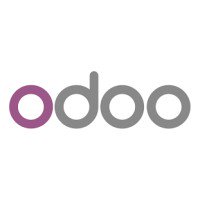 #9
#9
Odoo
By Odoo S.A.
An open-source suite of business applications offering a wide range of modules (ERP, CRM, eCommerce, etc.) with a flexible, app-based pricing model.
Platforms & Use Cases
Platforms: Cloud, On-Premise, Odoo.sh (PaaS)
Best For: SMBs, Startups, Companies needing high flexibility, Cost-conscious organizations
Key Features
- ✓Modular Design: Vast library of integrated apps covering almost every business need.
- ✓Open Source Flexibility: Core is open source, allowing deep customization and community contributions.
- ✓Affordable Pricing: Competitive pricing, especially the 'one app free' model and bundled pricing.
- ✓Integrated Website/eCommerce: Strong capabilities for building websites, online stores, and customer portals directly linked to ERP data.
Scorecard (Overall: 8.9 / 10.0)
Pricing
Free
Contact Vendor
- One App Free (e.g., Accounting or CRM)
Limitations: Limited to a single application
Standard
$19.90 / Per User/Month (Annual)
- All Odoo Apps
- Cloud Hosting
- Support
Limitations: Hosted on Odoo Cloud
Custom
$29.90 / Per User/Month (Annual)
- All Odoo Apps
- Odoo.sh Hosting
- On-Premise option
- Studio Customization
- External API Access
Limitations: Requires more technical setup/management
Pros
- + Extremely flexible and customizable (open source)
- + Very broad range of integrated applications
- + Affordable pricing model
- + Active community
Cons
- - Support quality can vary
- - Can become complex with many apps installed
- - Requires technical expertise for deep customization or self-hosting
Verdict
"An incredibly flexible and cost-effective option, particularly strong for SMBs that value customization and a wide array of integrated business functions."
User Reviews
Add Your Review
Loading reviews...
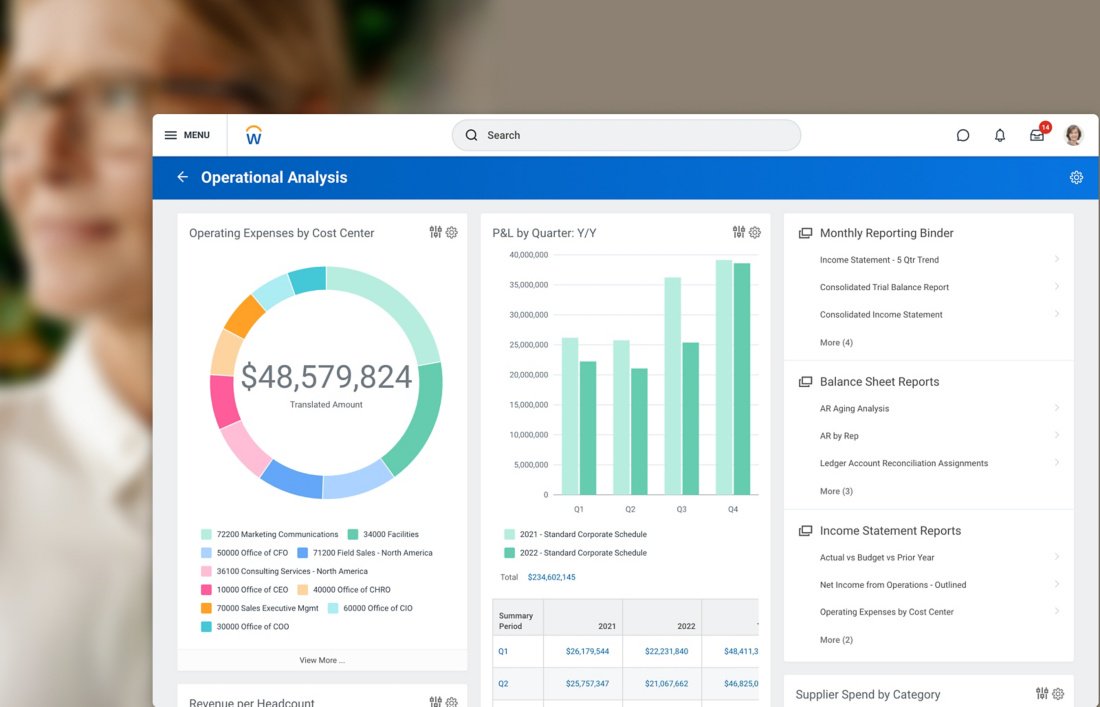 #8
#8
Workday Financial Management
By Workday
A cloud-native platform primarily known for HCM, but with strong Financial Management capabilities, often adopted by large, service-centric organizations.
Platforms & Use Cases
Platforms: Cloud
Best For: Large Enterprises, Service-Centric Industries (Finance, Tech, Healthcare, Higher Ed), Financial Planning & Analysis (FP&A)
Key Features
- ✓Unified Finance and HR: Combines financials, HCM, and planning into a single system with one data model.
- ✓Continuous Accounting: Enables real-time transaction processing and period closes.
- ✓Intelligent Data Core: Provides multi-dimensional reporting and analytics embedded within processes.
- ✓User Experience: Known for its modern, consumer-grade user interface.
Scorecard (Overall: 8.6 / 10.0)
Pricing
Subscription
Contact Vendor
- Financial Management Core
- Optional modules (Planning, Procurement, Projects)
- User-based (often bundled)
Limitations: Primarily finance/HR focused, less depth in manufacturing/supply chain, Premium pricing
Pros
- + Best-in-class user experience
- + Seamless unification of Finance and HR data
- + Strong planning and analytics capabilities
- + True cloud-native architecture
Cons
- - Less suitable for manufacturing or complex supply chain operations
- - Expensive
- - Limited customization compared to traditional ERPs
Verdict
"An excellent choice for large, people-centric organizations prioritizing unified HR/Finance and a superior user experience, particularly in service industries."
User Reviews
Add Your Review
Loading reviews...
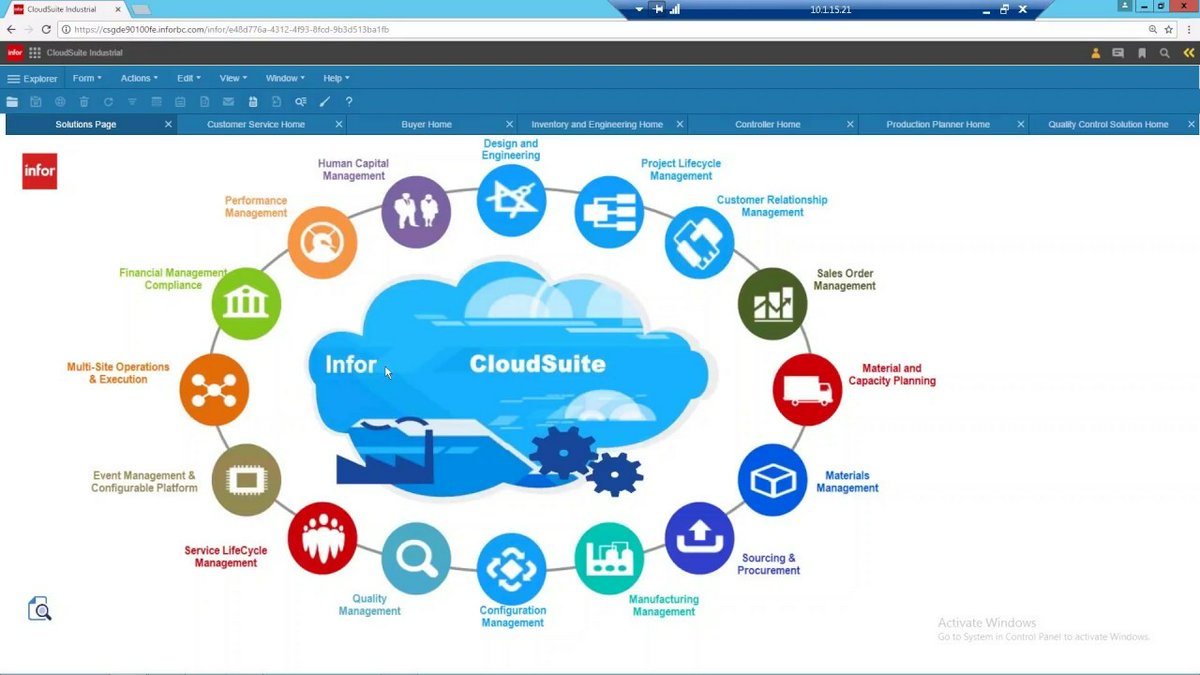 #7
#7
Infor CloudSuite
By Infor
A collection of industry-specific cloud ERP solutions built on AWS, targeting enterprise and mid-market customers in manufacturing, distribution, healthcare, and public sector.
Platforms & Use Cases
Platforms: Cloud
Best For: Manufacturing (Process & Discrete), Distribution, Healthcare, Public Sector, Hospitality
Key Features
- ✓Industry Specialization: Deep 'last-mile' functionality tailored for specific industries, reducing need for heavy customization.
- ✓Cloud Native on AWS: Leverages AWS infrastructure for scalability, security, and performance.
- ✓Infor OS Platform: Provides integration, AI (Coleman), analytics (Birst), and user experience services.
- ✓Networked Supply Chain: Features tools like Infor Nexus for supply chain visibility and collaboration.
Scorecard (Overall: 8.7 / 10.0)
Pricing
Subscription
Contact Vendor
- Industry-Specific Suite
- Infor OS
- Analytics
- User Licenses
Limitations: Pricing is quote-based and varies significantly by industry suite and scale
Pros
- + Excellent industry-specific functionality
- + Modern cloud architecture on AWS
- + Integrated AI and analytics platform
- + Strong supply chain capabilities
Cons
- - Can be complex due to the breadth of offerings
- - Implementation often requires specialized partners
- - Brand recognition lower than SAP/Oracle
Verdict
"A strong enterprise-grade cloud ERP contender, particularly compelling for organizations seeking deep functionality tailored to their specific industry."
User Reviews
Add Your Review
Loading reviews...
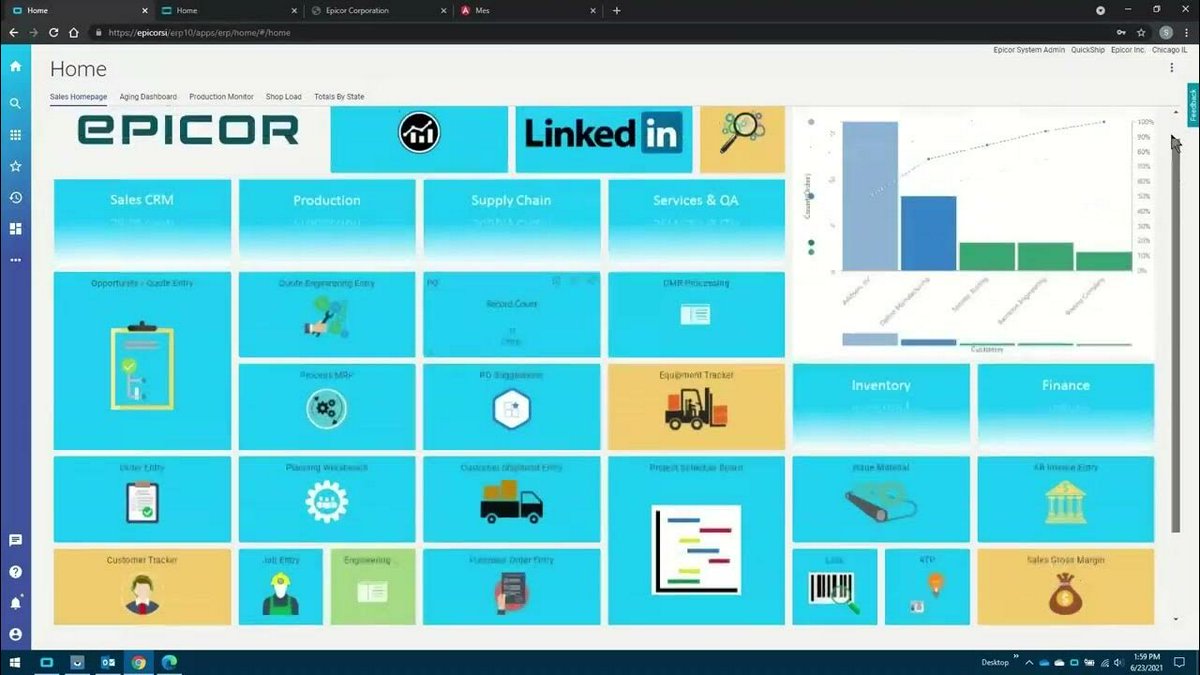 #6
#6
Epicor ERP (Kinetic)
By Epicor
An industry-specific ERP solution primarily focused on the manufacturing sector, offering deep functionality for production, supply chain, and distribution.
Platforms & Use Cases
Platforms: Cloud, On-Premise
Best For: Discrete Manufacturing, Distribution, Automotive, Building Supply, Retail (specific niches)
Key Features
- ✓Manufacturing Expertise: Deep features for various manufacturing modes (Make-to-Order, Configure-to-Order, etc.).
- ✓Supply Chain Management: Comprehensive tools for inventory, warehousing, procurement, and logistics.
- ✓Epicor Kinetic Design: Modern, browser-based user experience with role-based dashboards.
- ✓Industry Focus: Tailored solutions and workflows for specific manufacturing and distribution sub-verticals.
Scorecard (Overall: 8.5 / 10.0)
Pricing
Quote-Based
Contact Vendor
- Core ERP Modules
- Industry-Specific Modules
- User Licenses
Limitations: Can be complex and costly to implement
Pros
- + Exceptional depth in manufacturing functionality
- + Strong industry-specific solutions
- + Flexible deployment options (Cloud/On-Premise)
- + Modern Kinetic interface is an improvement
Cons
- - Primarily focused on manufacturing/distribution; less broad than some competitors
- - Can be complex to implement and manage
- - User interface historically less intuitive (though improving)
Verdict
"A top choice for mid-market to larger manufacturers needing deep, industry-specific operational capabilities."
User Reviews
Add Your Review
Loading reviews...
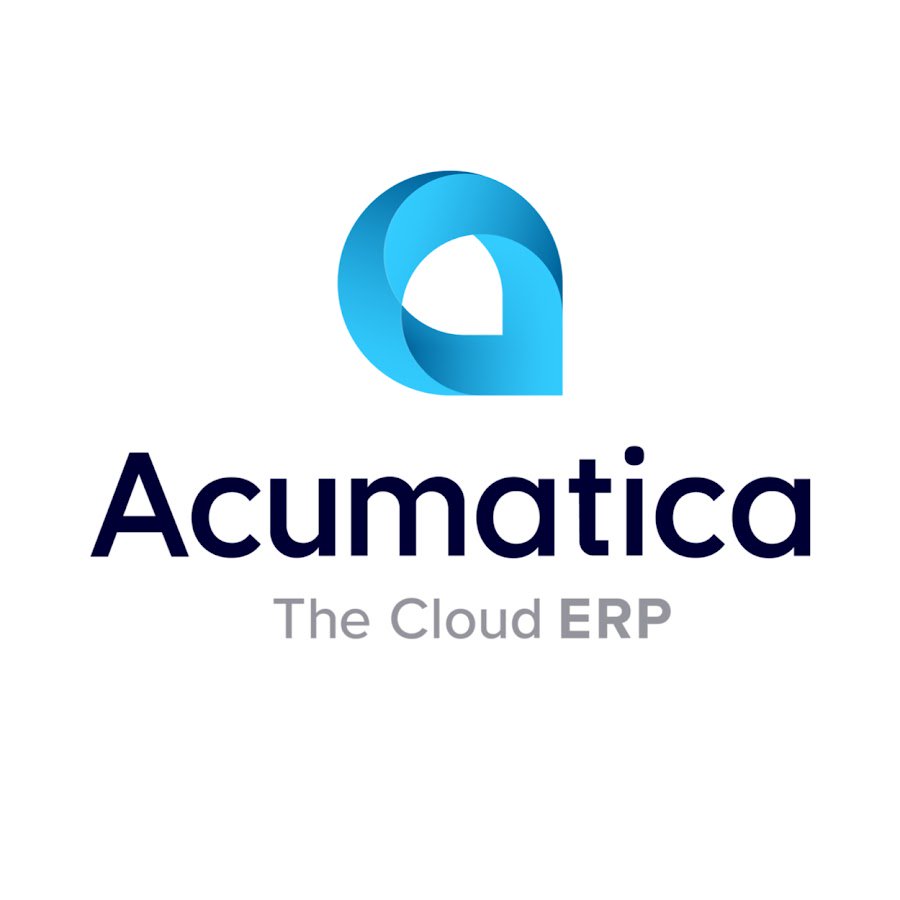 #5
#5
Acumatica Cloud ERP
By Acumatica
A flexible and modern cloud ERP solution with unique resource-based pricing, catering to mid-market companies across various industries.
Platforms & Use Cases
Platforms: Cloud, Private Cloud, On-Premise (via partners)
Best For: Distribution, Manufacturing, Construction, Retail-Commerce, Field Service
Key Features
- ✓Resource-Based Pricing: Pricing based on computing resources used, not per user, encouraging broad adoption within a company. (Unlimited Users)
- ✓Industry Editions: Tailored editions with specific functionality for target industries.
- ✓Mobile Access: Provides full functionality through mobile apps on iOS and Android.
- ✓Open Architecture: Built on a modern platform with strong APIs for customization and integration.
Scorecard (Overall: 8.9 / 10.0)
Pricing
Subscription
Contact Vendor
- Selected Application Suites
- Unlimited Users
- Choice of Deployment
Limitations: Pricing complexity based on resources consumed and modules selected
Pros
- + Unique unlimited user pricing model
- + Modern, user-friendly interface
- + Strong mobile capabilities
- + Flexible deployment options
- + Good industry-specific features
Cons
- - Resource-based pricing can be hard to predict initially
- - Relatively newer compared to giants like SAP/Oracle
- - Requires partner for implementation and sometimes support
Verdict
"A highly adaptable and user-friendly cloud ERP, particularly attractive for growing companies due to its unlimited user pricing model."
User Reviews
Add Your Review
Loading reviews...
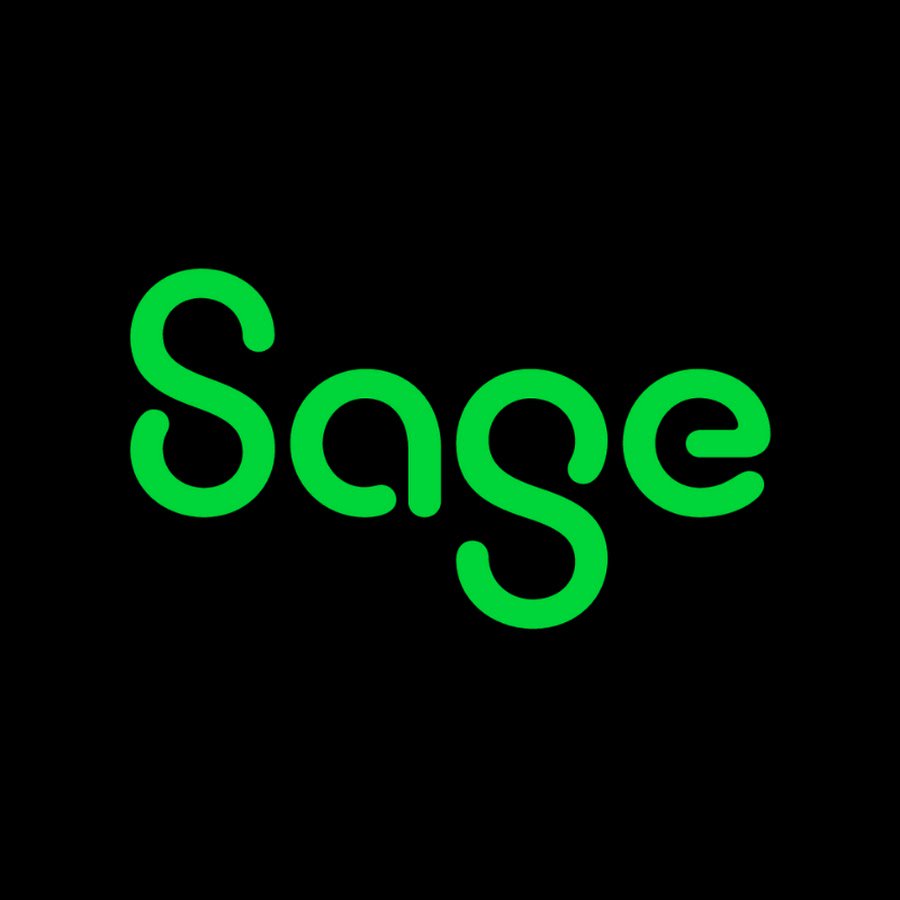 #4
#4
Sage Intacct
By Sage
A cloud-native financial management and accounting software, often extended with marketplace apps to provide broader ERP functionality, targeting SMBs and mid-market.
Platforms & Use Cases
Platforms: Cloud
Best For: Financial Services, Software & SaaS, Nonprofits, Professional Services, Healthcare
Key Features
- ✓Core Financials: Robust accounting features including general ledger, accounts payable/receivable, cash management. (AICPA Preferred)
- ✓Multi-Dimensional Reporting: Allows slicing and dicing financial data across various dimensions (location, department, project).
- ✓Automation: Automates key accounting processes like consolidations, allocations, and revenue recognition.
- ✓Open API & Marketplace: Integrates easily with other best-of-breed applications through APIs and a partner marketplace.
Scorecard (Overall: 8.7 / 10.0)
Pricing
Subscription
Contact Vendor
- Core Financials
- User Licenses
- Optional Modules (Inventory, Project Accounting, etc.)
Limitations: Primarily finance-focused; broader ERP requires integrations, Quote-based pricing
Pros
- + Best-in-class cloud financial management
- + Strong multi-entity and multi-dimensional reporting
- + High user satisfaction
- + Excellent integration capabilities
Cons
- - Core focus is finance; less native breadth in operations/manufacturing than full ERPs
- - Requires marketplace apps for full ERP scope
- - Can be pricey for smaller businesses
Verdict
"An exceptional choice for organizations prioritizing deep financial management capabilities in the cloud, with strong integration options."
User Reviews
Add Your Review
Loading reviews...
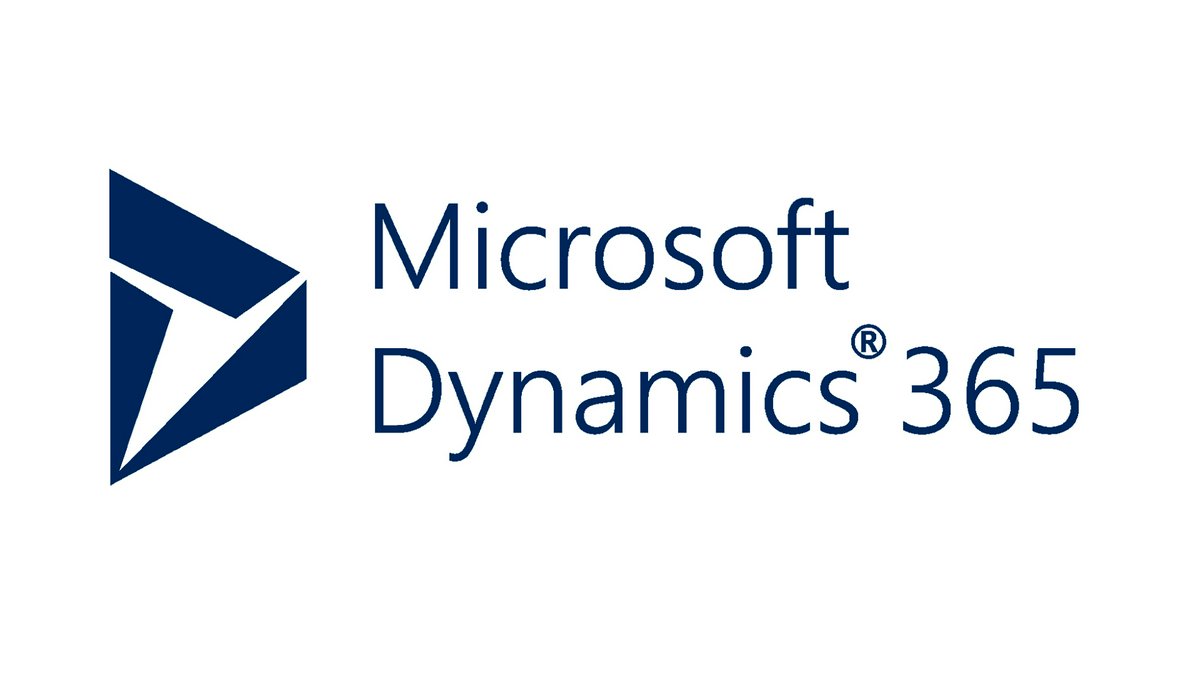 #3
#3
Microsoft Dynamics 365
By Microsoft
A suite of interconnected business applications, primarily split into Business Central (SMB) and Finance & Operations (Enterprise), tightly integrated with the Microsoft ecosystem.
Platforms & Use Cases
Platforms: Cloud, On-Premise (limited), Hybrid
Best For: SMBs (Business Central), Large Enterprises (Finance & Operations), Retail, Manufacturing, Professional Services
Key Features
- ✓Modular Approach: Allows businesses to start with specific applications (e.g., Finance, Supply Chain) and add more as needed.
- ✓Microsoft Ecosystem Integration: Seamless integration with Office 365, Power BI, Power Platform, and Azure.
- ✓Role-Based Workspaces: Tailored user interfaces and dashboards based on job roles.
- ✓AI and Mixed Reality Features: Incorporates AI insights and tools like Dynamics 365 Guides for mixed reality training.
Scorecard (Overall: 8.9 / 10.0)
Pricing
Business Central (SMB)
$70.00 / Per User/Month
- Financial Management
- Sales & Service
- Supply Chain
- Project Management
Limitations: Scaled for SMB needs
Finance & Operations (Enterprise)
$180.00 / Per User/Month (Base + Attach pricing model)
- Advanced Finance
- Supply Chain
- Manufacturing
- Commerce
Limitations: More complex setup, higher base cost
Pros
- + Excellent integration with Microsoft products
- + Flexible modular pricing
- + Strong capabilities for both SMBs and Enterprises
- + Modern user interface
Cons
- - Licensing can be complex
- - Distinction between Business Central and F&O can be confusing
- - Implementation requires experienced partners
Verdict
"A powerful and flexible choice, especially for organizations heavily invested in the Microsoft ecosystem, offering tailored solutions for different business sizes."
User Reviews
Add Your Review
Loading reviews...
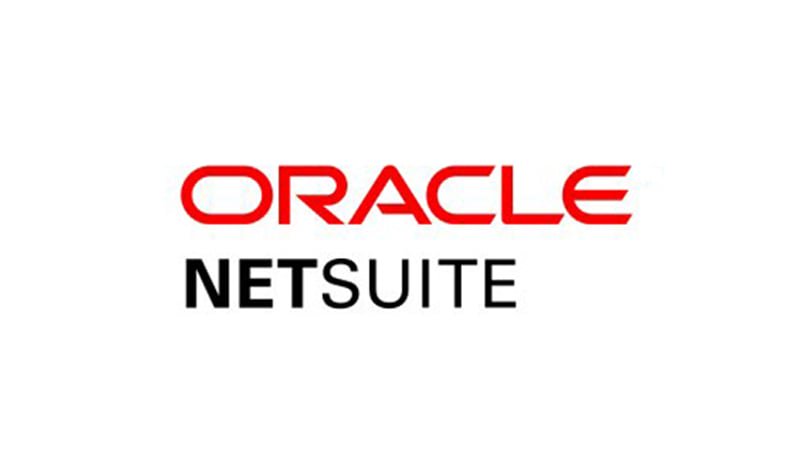 #2
#2
Oracle NetSuite
By Oracle
A leading cloud-based ERP system popular among mid-market companies and high-growth businesses, offering a unified platform for various business functions.
Platforms & Use Cases
Platforms: Cloud
Best For: Mid-Market Businesses, Software & Technology, Retail, Wholesale Distribution, Manufacturing
Key Features
- ✓Unified Business Management: Combines ERP, CRM, eCommerce, and PSA in one cloud platform.
- ✓Real-time Visibility: Provides dashboards and reporting across finance, sales, inventory, and operations.
- ✓Built-in Business Intelligence: Offers embedded analytics and reporting tools for data-driven decisions.
- ✓Scalability: Designed to scale with business growth, supporting multiple currencies and subsidiaries.
Scorecard (Overall: 8.6 / 10.0)
Pricing
Subscription
Contact Vendor
- Core ERP modules
- CRM
- Optional advanced modules (Manufacturing, WMS, etc.)
- User licenses
Limitations: Pricing based on modules, users, and contract term; can become expensive
Pros
- + True cloud-native architecture
- + Comprehensive suite covering ERP, CRM, eCommerce
- + Highly scalable for growing businesses
- + Strong reporting and analytics
Cons
- - Can be expensive, especially with add-on modules
- - Steeper learning curve for some modules
- - Customer support experiences vary
Verdict
"An excellent all-in-one cloud ERP for mid-market companies seeking scalability and a unified view across operations."
User Reviews
Add Your Review
Loading reviews...
View Top Ranked Software
Watch a short ad to unlock the details for the #1 ranked software.
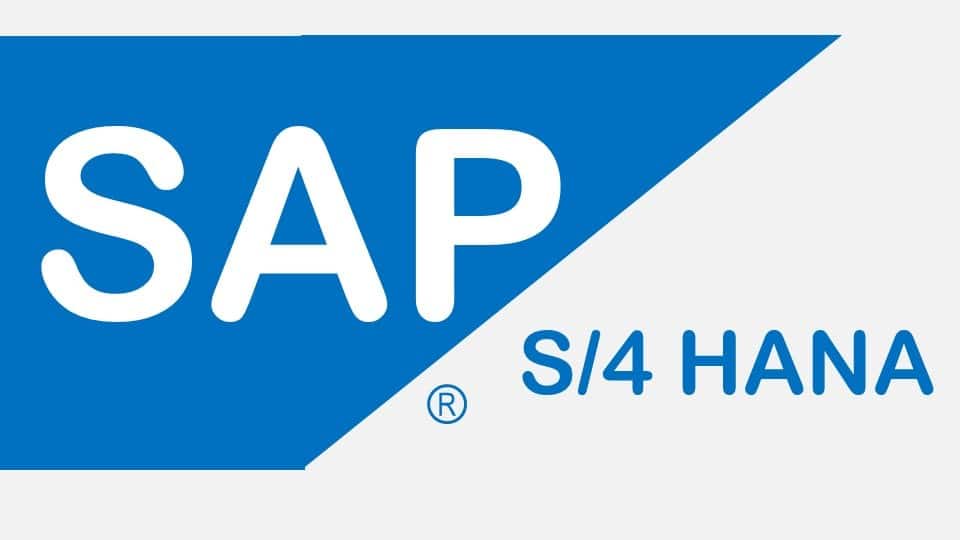 #1
#1
SAP S/4HANA
By SAP
A comprehensive, intelligent ERP suite designed for large enterprises, leveraging an in-memory database for real-time analytics and operations.
Platforms & Use Cases
Platforms: Cloud, On-Premise, Hybrid
Best For: Large Enterprise Operations, Complex Manufacturing, Global Supply Chain Management, Finance Transformation
Key Features
- ✓Real-time Analytics: Utilizes the HANA in-memory database for instant insights across all business functions.
- ✓Industry-Specific Solutions: Offers pre-configured solutions tailored for various industries like automotive, retail, and public sector.
- ✓Integrated Business Processes: Connects finance, logistics, procurement, manufacturing, and HR seamlessly.
- ✓Intelligent Automation: Embeds AI and machine learning for process automation and predictive insights.
Scorecard (Overall: 8.7 / 10.0)
Pricing
Quote-Based
Contact Vendor
- Full Suite Access (Configurable)
- Implementation Services
- Support Options
Limitations: High implementation cost and complexity
Pros
- + Extremely comprehensive functionality
- + Powerful real-time analytics
- + Highly scalable for global operations
- + Strong industry-specific capabilities
Cons
- - Very expensive implementation and ownership
- - Complex user interface
- - Requires significant internal expertise
Verdict
"The gold standard for large, complex enterprises needing deep functionality and real-time processing, but requires substantial investment."
User Reviews
Add Your Review
Loading reviews...
Author information could not be loaded for this review.
Final Thoughts
The ERP software market offers a diverse range of solutions catering to different business sizes, industries, and operational priorities. Large enterprises often gravitate towards the comprehensive but complex SAP S/4HANA or industry-specific suites like Infor CloudSuite. Mid-market companies find strong value in scalable cloud platforms like Oracle NetSuite, Microsoft Dynamics 365, and Acumatica. Financially-focused organizations favor Sage Intacct, while those in asset-intensive or service industries look to IFS Cloud or Epicor. Odoo stands out for its flexibility and affordability, particularly for SMBs.
User Reviews
Add Your Review
Loading reviews...
No reviews yet. Be the first to share your thoughts!